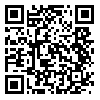1. Yu S, Zhang C, Zhou Y, Shi Y, Xu W. Longitudinal relationship between inferiority and maladjustment among college students: The mediation of dispositional mindfulness and moderation of left-behind experience. Children and Youth Services Review. 2020;116:105249. [
DOI]
2. American Psychiatric Association. Diagnostic and statistical manual of mental disorders: DSM-5. 5th ed. Washington, D.C: American Psychiatric Association; 2013.
3. DeWall CN, Buckner JD, Lambert NM, Cohen AS, Fincham FD. Bracing for the worst, but behaving the best: social anxiety, hostility, and behavioral aggression. J Anxiety Disord. 2010;24(2):260–8. [
DOI]
4. Gilbert P, Miles JNV. Sensitivity to social put-down: Its relationship to perceptions of social rank, shame, social anxiety, depression, anger and self-other blame. Personality and Individual Differences. 2000;29(4):757–74. [
DOI]
5. Kocovski NL, Fleming JE, Blackie RA, MacKenzie MB, Rose AL. Self-Help for social anxiety: randomized controlled trial comparing a mindfulness and acceptance-based approach with a control group. Behavior Therapy. 2019;50(4):696–709. [
DOI]
6. Goldin PR, Morrison AS, Jazaieri H, Heimberg RG, Gross JJ. Trajectories of social anxiety, cognitive reappraisal, and mindfulness during an RCT of CBGT versus MBSR for social anxiety disorder. Behav Res Ther. 2017;97:1–13. [
DOI]
7. Buckner JD, Lewis EM, Abarno CN, Heimberg RG. Mindfulness training for clinically elevated social anxiety: The impact on peak drinking. Addict Behav. 2020;104:106282. [
DOI]
8. Gyoerkoe KL, Wiegartz P. The worrier’s guide to overcoming procrastination: breaking free from the anxiety that holds you back. Farzinrad B, Davoudi F. (Persian translator). Tehran: Arjmand Pub; 2018.
9. Morrison AS, Mateen MA, Brozovich FA, Zaki J, Goldin PR, Heimberg RG, et al. Changes in empathy mediate the effects of cognitive-behavioral group therapy but not mindfulness-based stress reduction for social anxiety disorder. Behav Ther. 2019;50(6):1098–111. [
DOI]
10. Siegel RD. The mindfulness solution: everyday practices for everyday problems. Keshmiri M, Jalali P. (Persian translator). Tehran: Arjmand Pub; 2018.
11. Sun J-W, Xue J-M, Bai H-Y, Zhang H-H, Lin P-Z, Cao F-L. The association between negative life events, neuroticism and aggression in early adulthood. Personality and Individual Differences. 2016;102:139–44. [
DOI]
12. Butler RM, Boden MT, Olino TM, Morrison AS, Goldin PR, Gross JJ, et al. Emotional clarity and attention to emotions in cognitive behavioral group therapy and mindfulness-based stress reduction for social anxiety disorder. J Anxiety Disord. 2018;55:31–8. [
DOI]
13. Kocovski NL, Fleming JE, Hawley LL, Ho M-HR, Antony MM. Mindfulness and acceptance-based group therapy and traditional cognitive behavioral group therapy for social anxiety disorder: Mechanisms of change. Behav Res Ther. 2015;70:11–22. [
DOI]
14. Shikatani B, Antony MM, Kuo JR, Cassin SE. The impact of cognitive restructuring and mindfulness strategies on postevent processing and affect in social anxiety disorder. J Anxiety Disord. 2014;28(6):570–9. [
DOI]
15. Tarkhan M. The effectiveness of group mindfulness-based cognitive therapy on negative automatic thoughts, aggression and dysfunctional attitudes of aggressive students. Journal of Psychological Studies. 2018;14(2):161–76. [Persian] [
DOI]
16. Stephens AN, O’Hern S, Young KL, Chambers R, Hassed C, Koppel S. Self-reported mindfulness, cyclist anger and aggression. Accid Anal Prev. 2020;144:105625. [
DOI]
17. Zare H, Khaleghi Delavar F, Zare M, Shayeghian Z. Effect of mindfulness in reducing aggression and impulsivity in adolescents. J Research & Health. 2016;16(1):113-21. [
Article]
18. Razavieh A. Research methods in behavioral and educational sciences. Shiraz: Shiraz University Pub; 2017. [Persian]
19. Connor KM, Davidson JR, Churchill LE, Sherwood A, Foa E, Weisler RH. Psychometric properties of the Social Phobia Inventory (SPIN). New self-rating scale. Br J Psychiatry. 2000;176:379–86. [
DOI]
20. Salajegheh S, Bakhshani N. Effectiveness of combined group exposure therapy and coping with stress skills training on social anxiety rate of university students. Knowledge & Research in Applied Psychology. 2017;15(56):96–104. [Persian] [
Article]
21. Buss AH, Perry M. The aggression questionnaire. J Pers Soc Psychol. 1992;63(3):452–9. [
DOI]
22. Samani S. Study of reliability and validity of the buss and perry’s aggression questionnaire. Iranian Journal of Psychiatry and Clinical Psychology. 2008;13(4):359–65. [Persian] [
Article]
23. Hambour VK, Zimmer-Gembeck MJ, Clear S, Rowe S, Avdagic E. Emotion regulation and mindfulness in adolescents: Conceptual and empirical connection and associations with social anxiety symptoms. Personality and Individual Differences. 2018;134:7–12. [
DOI]
24. Saadat Momeni N, Aghayousefi A, Khajevand Khoshli A, Rostamian A. Comparison of the effectiveness of coping therapy and cognitive-behavioral therapy in cognitive immunity and psychological well-being indicators of patients with rheumatoid arthritis referring to Imam Khomeini Hospital, Tehran, Iran. Qom University of Medical Sciences Journal. 2020;14(8):39–49. [Persian] [
DOI]
25. Frewen PA, Evans EM, Maraj N, Dozois DJA, Partridge K. Letting go: Mindfulness and negative automatic thinking. Cognitive Therapy and Research. 2008;32(6):758–74. [
DOI]
26. Kocovski NL, Fleming JE, Rector NA. Mindfulness and acceptance-based group therapy for social anxiety disorder: an open trial. Cognitive and Behavioral Practice. 2009;16(3):276–89. [
DOI]

 ، علیرضا منظری توکلی*2
، علیرضا منظری توکلی*2 
 ، امان اله سلطانی3
، امان اله سلطانی3 
 ، نجمه حاجی پور2
، نجمه حاجی پور2 




